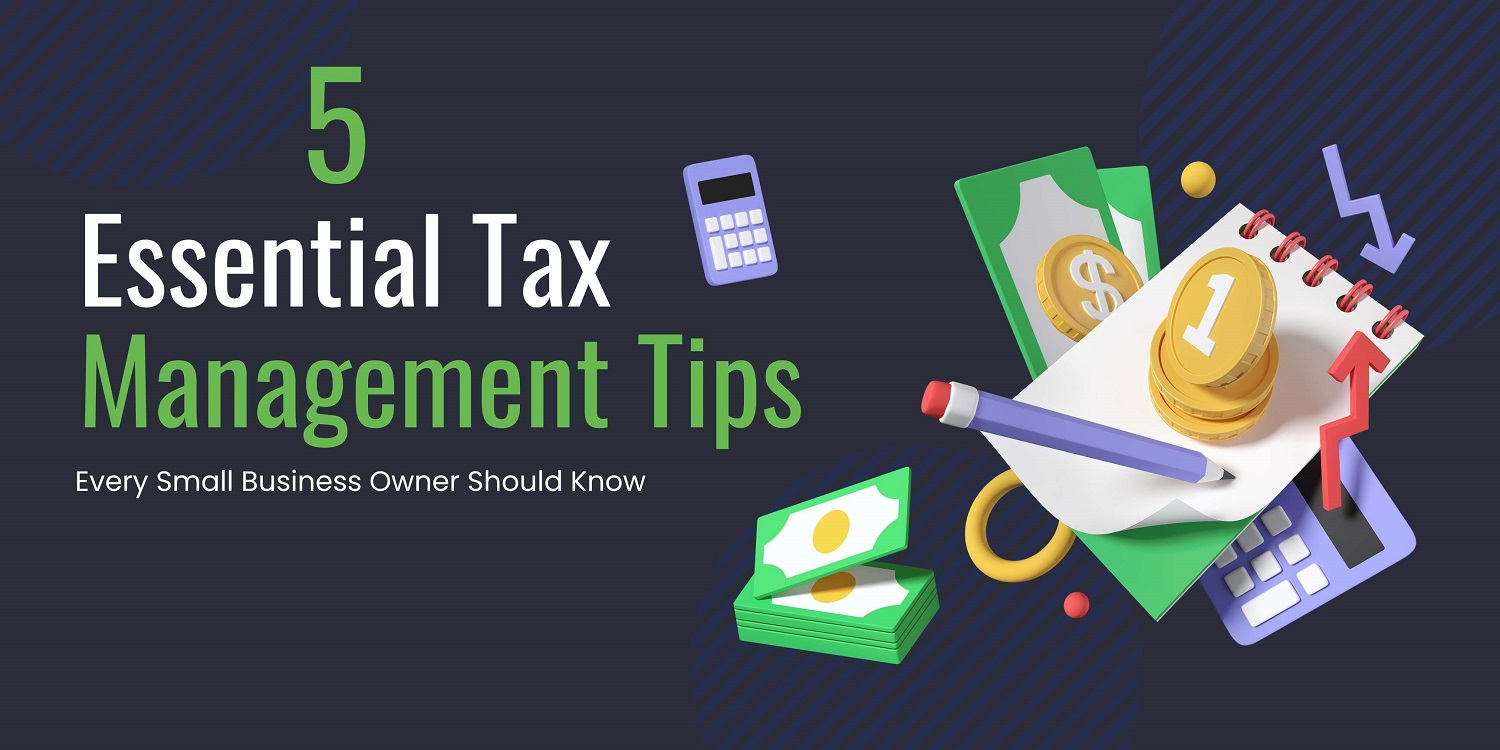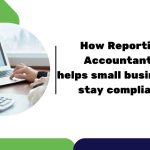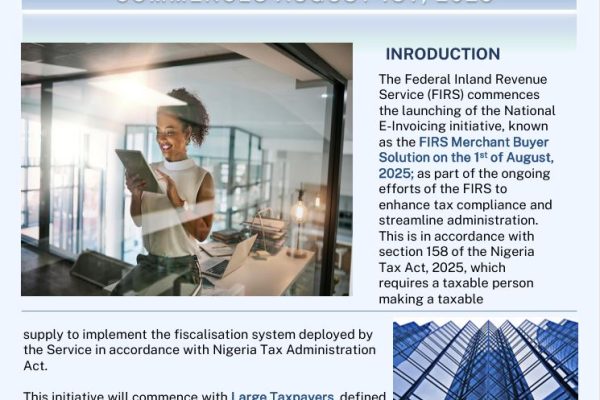5 Essential Tax Management Tips Every Small Business Owner Should Know
As a small business owner, managing your finances effectively is critical to the success of your business. One area that can be particularly daunting is tax management. The complexity of tax regulations, deductions, credits, and filing deadlines can feel overwhelming, especially if you’re juggling the day-to-day operations of your business. However, understanding key tax management strategies can help you save money, avoid penalties, and position your business for long-term growth.
In this blog post, we’ll cover five essential tax management tips that every small business owner should know. Whether you’re a seasoned entrepreneur or just starting, these tips will help you stay compliant and optimize your tax situation.
1. Understanding Tax Deductions
One of the most effective ways to lower your taxable income is by taking advantage of tax deductions. Deductions are expenses that the IRS allows you to subtract from your total income, which reduces the amount of income that is subject to tax.
Some common small business deductions include:
- Office supplies: Items like computers, printers, pens, and paper are deductible.
- Travel expenses: Business-related travel costs, including flights, accommodation, and meals, can be deducted.
- Home office deduction: If you run your business from home, you may be able to deduct a portion of your home expenses, such as rent, utilities, and internet.
- Vehicle expenses: If you use a car for business, you can either deduct the actual expenses (fuel, maintenance, etc.) or use the standard mileage rate set by the IRS.
- Professional services: Fees paid to lawyers, accountants, consultants, and other professionals can be deducted as business expenses.
It’s important to keep detailed records of these expenses, as the IRS may require documentation if your deductions are ever questioned. Familiarize yourself with the IRS guidelines on what constitutes a deductible expense to ensure you’re taking full advantage of the available deductions.
2. Efficient Record-Keeping Techniques
Good record-keeping is the foundation of effective tax management. Not only does it make tax filing easier, but it also helps you avoid costly mistakes or penalties in case of an audit.
Here are some record-keeping techniques that can streamline your tax filing process:
- Use accounting software: Tools like QuickBooks, FreshBooks, or Xero can help you organize and track your income, expenses, and invoices. These platforms often integrate with your bank accounts and credit cards, making it easier to monitor cash flow.
- Store digital receipts: Paper receipts can easily get lost or damaged. Instead, take a photo or scan receipts and store them in cloud-based storage. Some accounting software even allows you to attach receipts to specific transactions.
- Categorize expenses: Set up categories for your expenses (e.g., office supplies, travel, meals, etc.) to make tracking and deduction calculations easier. This will help when it comes time to file your taxes, as you’ll know exactly how much you spent in each category.
- Reconcile regularly: Make it a habit to reconcile your accounts monthly. This will help you catch any discrepancies early and ensure your records are accurate.
Accurate records are critical not only for filing your taxes but also for understanding your financial position throughout the year. Poor record-keeping can result in missed deductions, overpaying taxes, or penalties from the IRS.
3. Planning for Quarterly Taxes
Many small business owners are required to pay estimated taxes quarterly, rather than waiting until the annual tax deadline. The IRS requires these payments if you expect to owe more than $1,000 in taxes for the year, and failure to make timely payments can result in penalties.
Here’s how to effectively plan for quarterly taxes:
- Calculate your estimated taxes: Use your previous year’s tax return as a guide. You can also use the IRS’s Form 1040-ES to calculate your estimated payments based on your projected income for the year.
- Set aside funds regularly: Don’t wait until the last minute to scramble for funds. Set aside a portion of your income each month specifically for taxes. This way, when the quarterly payment is due, you’ll have the money ready.
- Track your income throughout the year: Your income might fluctuate from quarter to quarter, especially if you operate a seasonal business. Keep a close eye on your earnings, so you can adjust your estimated tax payments accordingly.
- Know the deadlines: The deadlines for quarterly tax payments are April 15, June 15, September 15, and January 15. Mark these dates on your calendar and set reminders, so you don’t miss any payments.
Paying estimated taxes can help you manage cash flow and avoid large, unexpected tax bills at the end of the year. It also prevents you from incurring interest and penalties for underpayment.
4. Leveraging Tax Credits
Tax credits differ from deductions in that they reduce the amount of tax you owe, rather than reducing your taxable income. This means that credits have a dollar-for-dollar impact on your tax liability, making them extremely valuable.
Some common tax credits available to small business owners include:
- Work Opportunity Tax Credit (WOTC): This credit rewards businesses for hiring individuals from specific target groups, such as veterans, ex-felons, or individuals receiving government assistance.
- Research and Development (R&D) Tax Credit: If your business is involved in innovation, product development, or process improvement, you may be eligible for this credit.
- Energy-efficient business credits: If you make energy-efficient upgrades to your property or use renewable energy sources, you may qualify for certain energy-related tax credits.
- Small Business Health Care Tax Credit: If you provide health insurance to your employees through the Small Business Health Options Program (SHOP), you may be eligible for this credit.
Make sure to research which tax credits apply to your business, and consult with a tax advisor if you’re unsure. Claiming eligible credits can significantly reduce your tax bill and help you reinvest in your business.
5. How a Tax Advisor Can Save You Time & Money
Navigating the world of taxes can be complex, especially as your business grows. A tax advisor can be an invaluable resource in ensuring your business is compliant with tax regulations while maximizing your savings.
Here’s how a tax advisor can help:
- Expert knowledge: Tax laws are constantly changing, and it can be challenging to stay up-to-date. A tax advisor can ensure you’re aware of any new regulations or tax-saving opportunities that apply to your business.
- Customized advice: Every business is unique, and a tax advisor can provide tailored strategies that fit your specific situation. They can help you identify deductions and credits you might not have considered and offer advice on structuring your business to minimize taxes.
- Avoid penalties: Filing your taxes incorrectly or missing deadlines can result in costly penalties. A tax advisor will make sure your tax return is accurate and filed on time, reducing the risk of errors.
- Long-term tax planning: A tax advisor can help you develop a tax strategy that aligns with your business goals. Whether you’re planning for expansion, retirement, or a potential sale of the business, they can help you optimize your tax position for the long term.
While hiring a tax advisor may seem like an additional expense, the savings they can provide often outweigh the cost of their services.
Managing taxes effectively is a critical part of running a successful small business. By understanding tax deductions, keeping accurate records, planning for quarterly taxes, leveraging tax credits, and working with a tax advisor, you can ensure that your business remains compliant while maximizing your tax savings.
Taxes don’t have to be a source of stress for small business owners. With the right strategies in place, you can focus on what you do best—growing your business.
Need help with tax planning? Contact us today for expert advice and ensure your small business stays on the right financial track!
Tell Us:
What’s your biggest tax challenge as a small business owner? Let us know in the comments below! Your feedback could help us provide more valuable content tailored to your needs.











